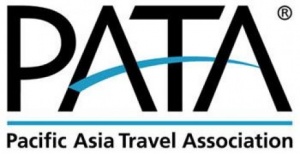PATA to establish Healthcare Travel Advisory Task Force

PATA aims to establish a Healthcare Travel Advisory Task Force, in conjunction with MEDICO Services International, Bangkok. Greg Duffell, CEO, PATA, is therefore seeking volunteers and vital contributions from PATA members with knowledge of, and experience in, this fast-expanding niche market across the Asia Pacific region.
Said Duffell: “We recognise the importance of this emerging tourism market segment. We are keen to identify both the opportunities and challenges in this niche for our members and potential new members. Medical tourists are customers for airlines, hotels, tour operators and insurance companies, as well as hospitals and wellness spas. I welcome expert contributions and expressions of interest in joining our new advisory task force. This new advisory task force will conduct surveys, gather opinions, enable debates, and push for solutions to share with the industry at large, which we hope will encourage new membership from businesses providing Healthcare services to join PATA as an authority in this area. We also envisage a programme of specialised conferences and workshops for industry stakeholders.
“The advisory task force will meet periodically and comprise some 10-15 members from all sectors of tourism. Meetings will be conducted either electronically or in the form of workshops (where costs permit), most probably alongside other major PATA events.”
A meeting between Greg Duffell and MEDICO president Dr Zadok Lempert identified several key issues that should be addressed, including:
- Liability issues of medical tourism
- Guidelines to the creation of medical tourism destinations
- Medical travel insurance
- Increased cooperation across this niche market
- Networking and data exchange for medical tourism specialists
ADVERTISEMENT
Said Lempert: “Medical tourism is quickly gaining awareness in consumer markets. Over the past decade, Asia has been the preferred destination for many people seeking less expensive, but high quality, medical treatments. The increase is partially due to high medical costs paired with long waiting periods in western countries such as the United States, United Kingdom, Europe and Australia. Specialised treatments, surgeries and therapies are being offered in Asia at a fraction of the cost yet with bigger perks, when it comes to hospitality and patient comfort.
“Waiting times are minimal. Favourable exchange rates with regional currencies in Asia make medical procedures an incredible value-for-money option to residents in Europe and the USA. Cheaper medical costs mean more money is available for family members and friends to accompany the patients. It is those family and friends that seek accommodation near the hospitals so they can visit the patients, yet at the same time, have a comfortable stay affording them access to the rest of the city’s or country’s attractions,” added Lempert.

